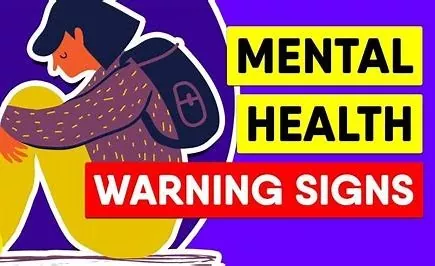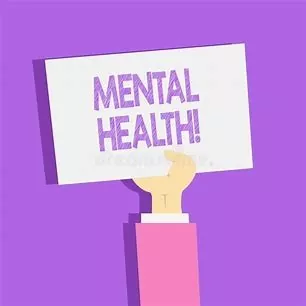Your mental health is an important component of your overall well-being. This aspect of your well-being determines your ability to function psychologically, emotionally, and socially, among other things. Given the importance of mental health in all aspects of your life, it is critical to protect and improve psychological wellness through appropriate measures.
As a member of the LGBTQ+ community, we have different sexual orientations and gender identities that make us different from the majority of the population. We are subjected to bullying and discrimination from society because we are different. Within our community bisexuals and transgender have the highest rates of mental health issues, and youth have the highest rates of mental health issues compared to the other age groups and we are likely to suffer from mental illnesses because we face shame, discrimination, and adverse and traumatic events. There are several negative stereotypes associated with being a member of the LGBTQ+ community, which can make us feel uneasy about being open about our identity. Somehow, we believe that hiding our true identity increases the feeling of loneliness.
Therefore, Positive changes have occurred in the social attitude toward our community. As a result of this shift, the number of LGBTQ+ youth who “come out” or share their sexual orientation or gender identity has increased. Coming out at a young age can have a negative impact on our social and relational experiences, as well as mental health, especially if these young people do not have a healthy support system.
Identifying Early Signs of Mental Health Issues
Though the signs vary from person to person depending on various factors and the type of mental illness, there are some categories in which most people will show changes. Some people may suffer from mental illness in silence, with their symptoms hidden or occurring mostly in their heads. Others, on the other hand, may experience symptoms in a variety of ways, with some even manifesting physically.
As a result of this discrimination and other risk factors, LGBTQ+ youth may experience a variety of mental health issues. Anxiety and depression, stress, low self-esteem, disordered eating, substance abuse, and even suicide are examples of mental health issues.
Knowing how to recognize the early warning signs of mental health issues and illnesses can help you and your loved one’s address issues sooner. There are numerous warning signs to look for, coping strategies to employ, and actions to take to improve your mental health.

We’ll be highlighting the signs that may indicate mental distress. In general, you can expect warning signs in three areas:
- Physical Indicators
- Behavioural Indicators
- Mental and Emotional Indicators
Read More: A History of Queer Fashion: Out of the Closet and Into Our Hearts!
Physical Signs of Mental Illness
- Sudden Increase or Decrease in Weight
Weight changes that are drastic or concerns, whether they are weight loss or weight gain, can indicate a mental health problem. “Eating disorders are a type of mental health disorder in which a person has abnormal or inappropriate eating habits, which usually result in weight loss. Weight loss can also be caused indirectly by depression due to changes in appetite caused by mood changes.
- Social isolation
Those suffering from certain mental health issues frequently worry that they will be rejected, that they are ‘inferior,’ and that they must conceal their disorder. As a result, they frequently withdraw and isolate themselves.
- Reduced Energy
Those who are severely depressed frequently have low energy and thus spend more time in sedentary, solitary activities. Mental illness can cause fatigue for a variety of reasons, including disrupted sleep patterns, a lack of exercise, and mental exhaustion.
- Restlessness
The inability to rest or relax is a key indicator that someone may be battling a mental health condition. Not being able to sit still with constant moving or fidgeting can be present in attention deficit hyperactivity disorder (ADHD,) schizophrenia, or most commonly, in those with anxiety issues.
People who are depressed frequently exhibit a “blunted affect,” or a lack of face expression. The classic description includes downcast eyes and a slumped posture. People can ‘brighten’ their facial expressions while still feeling depressed.
Read More: How to be the best parent to your Trans child
Behavioural Signs of Mental Illness
1. Being anxious or concerned
We all experience anxiety or stress from time to time. However, anxiety may be a sign of a mental health disorder if it is constant and interferes with daily life. Heart palpitations, shortness of breath, headache, sweating, trembling, feeling dizzy, restlessness, diarrhoea, or a racing mind are all symptoms of anxiety.
2. Feeling depressed or unhappy
Being sad or irritable for several weeks or more, lacking motivation and energy, losing interest in a hobby, or being teary all the time are all symptoms of depression.
3. Excessive emotional outbursts
Everyone has different moods, but abrupt and dramatic mood changes, such as extreme distress or anger, can be a sign of mental illness.
4. A sense of guilt or worthlessness
Thoughts such as “I’m a failure,” “It’s my fault,” or “I’m worthless” are all possible symptoms of a mental health disorder such as depression. If your friend or loved one is constantly criticizing or blaming themselves, they may require assistance. When the situation is severe, a person may express a desire to hurt or kill themselves. This feeling could indicate that the person is suicidal and that immediate assistance is required.
5. Behavioural or emotional shifts
A mental health disorder can begin with subtle changes in a person’s feelings, thoughts, and behaviour. Changes that are ongoing and significant could indicate that they have or are developing a mental health disorder. If something doesn’t seem quite right, it’s critical to start talking about getting help.
Read More: Love is Love: India’s First Openly Lesbian Athlete Reveals Her Love Story
Mental and emotional signs of Mental Health
Worry and anxiety are natural emotions that everyone feels from time to time. When you take a test, give a big presentation, get lost, or have to make a big decision, you may feel anxious. Anxiety can be very useful in these situations because it makes you more alert or cautious. It usually goes away as soon as you leave the situation that caused it.
These feelings are caused by a number of recognized anxiety disorders, including:
a. Panic disorder is characterized by feelings of terror that strike unexpectedly and repeatedly. Sweating, chest pain, palpitations (irregular heartbeats), and a feeling of choking are also symptoms.
b. Obsessive-compulsive disorder (OCD) is characterized by persistent thoughts or fears that lead to the performance of rituals or routines. A person with a strong fear of germs, for example, would constantly wash his or her hands.
c. Post-traumatic stress disorder (PTSD) can develop in the aftermath of a traumatic and/or terrifying event, such as a sexual or physical assault, the untimely death of a loved one, or a natural disaster. People suffering from PTSD frequently have lasting and frightening thoughts and memories of the event, and they are often emotionally numb.
d. Social anxiety disorder is characterized by excessive worry and self-consciousness in everyday social situations, a fear of being judged by others, or a fear of acting in a way that may cause embarrassment or ridicule.
e. Generalized anxiety disorder involves excessive, unrealistic worry and tension, even if there is little or nothing to provoke the anxiety.

Here are some of the ways you can support the Mental Health of the LBGTQ+ Community
Without a doubt, we play a critical role in changing the situation for the LGBTQ+ community.
- Educate yourself and others to increase your understanding
- Support us in Accessing Mental Health Resources
- Respect our identity
- Speak up if you witness (or are the victim of) discrimination
- Sharing our experiences with others
Mental health is individualized and complex. No two people share the exact same genetic, environmental, and mental makeup, so mental health problems will look different for everyone.
The important thing to remember is that there is no such thing as a mental health problem caused by our gender or sexual orientation. Mental health issues exist as a result of a world that continues to deny, criticize, and make it difficult for us to be different.
Despite all the hostilities, the members of our community are thriving and resilient. All we need is some recognition and love from our families and near and dear ones. Humanity is more important than sexual orientation or the complications surrounding them. A meaningful co-existence makes the world more beautiful. It is time we recognize these differences and make this world a better place for all.


One thought on “How to Identify the Early Signs of Mental Health Problems ”